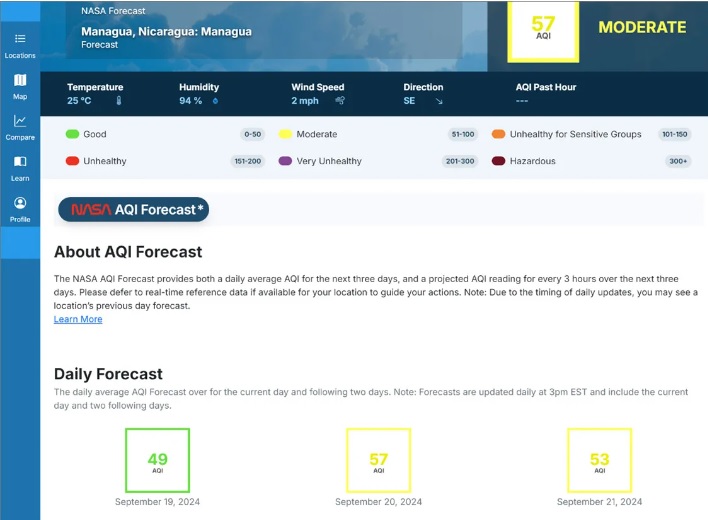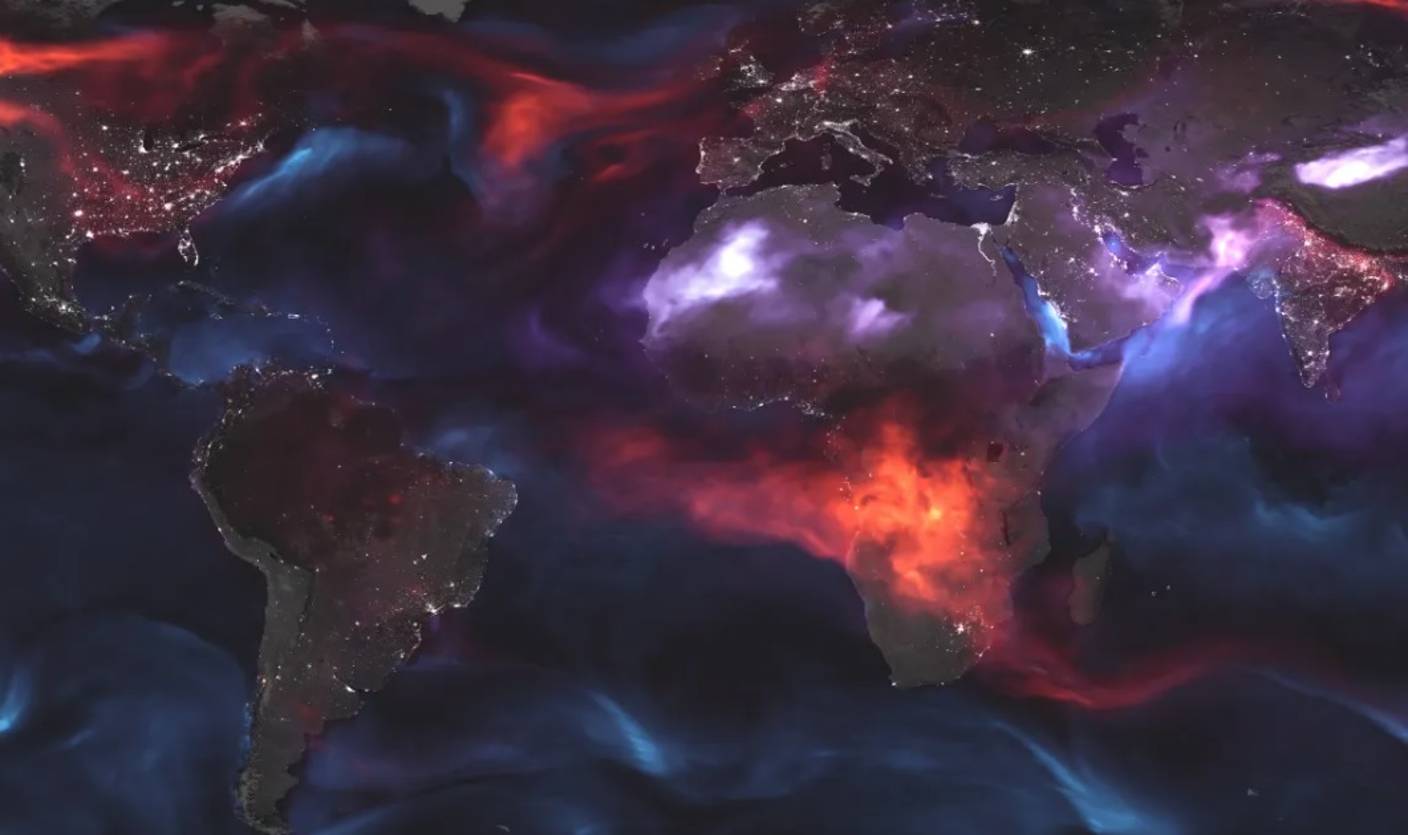U.S. embassies and consulates, along with American citizens living and traveling abroad, now have enhanced protection against air pollution through a partnership between NASA and the U.S. State Department.
Since 2020, ZephAir has been delivering real-time air quality data to around 75 U.S. diplomatic posts. The tool has now expanded to provide three-day forecasts for PM2.5 levels—fine particulate matter that poses serious health risks—across all 270 U.S. embassies and consulates globally.
Tiny particles can penetrate deep into the lungs and enter the bloodstream, leading to respiratory and cardiovascular issues.
“This collaboration with NASA showcases how space-based technology can directly impact lives on the ground,” said Stephanie Christel, climate adaptation and air quality monitoring program lead with the State Department’s Greening Diplomacy Initiative.
“This is not something the State Department could have done on its own.” For instance, placing air quality monitors at all U.S. diplomatic posts is prohibitively expensive,”
“NASA’s involvement brings not only advanced technology,” she added, “but also a trusted name that adds credibility and reliability to the forecasts, which is invaluable for our staff stationed abroad.” she said.
The forecasts, developed using NASA satellite data, computer models, and machine learning, are vital for U.S. embassies and consulates, home to around 60,000 American citizens and local staff with many of the locations situated in areas with limited air quality monitoring and few early warning systems for pollution.
“ZephAir’s new forecasting capability is a prime example of NASA’s commitment to using our data for societal benefit,” said Laura Judd, an associate program manager for Health and Air Quality at NASA.
“Partnering with the State Department allows us to extend the reach of our air quality data, providing embassies and local communities worldwide with vital information to protect public health.” Judd said.
Improving Health and Safety with NASA Air Quality Data
To manage air pollution exposure, the tool can assist diplomatic staff with decisions on everything from building ventilation to outdoor activities at embassy schools.
For many embassies, especially in regions with severe air pollution, having reliable air quality forecasts is crucial for safeguarding staff and their families, influencing both daily decisions and long-term planning.
“Air quality is a top priority for my family as we think about [our next assignment], so having more information is a huge help,” said Alex Lewis, a political officer at the U.S. embassy in Managua, Nicaragua.

Previously, ZephAir provided real-time data on PM2.5 levels from ground monitors at about 75 U.S. diplomatic locations, supplemented by around 50 additional sources.
PM2.5 refers to particles or droplets that are 2.5 micrometers or smaller in diameter—approximately 30 times thinner than a human hair.
Now, the upgraded tool offers PM2.5 forecasts for all sites, utilising the Goddard Earth Observing System forward processing (GEOS-FP), a sophisticated weather and climate model.
The model also integrates aerosol data from the MODIS (Moderate-resolution Imaging Spectroradiometer) on NASA’s Terra and Aqua satellites.
Aerosols are tiny particles suspended in the atmosphere, originating from both natural sources like dust, volcanic ash, and sea spray, as well as human activities such as fossil fuel combustion.
“We use the GEOS-FP model to generate global aerosol forecasts,” said Pawan Gupta, of NASA’s Goddard Space Flight Center in Greenbelt, Maryland, and the lead scientist on the project.
“Then we calibrate the forecasts for embassy locations, using historical data and machine learning techniques.” Gupta said.
The new forecasts not only aim to protect U.S. citizens and local embassy staff, but also play a role in global efforts to improve air quality. The State Department also collaborates with local governments and communities to raise awareness about air quality challenges.
These forecasts are a critical part of our strategy to mitigate the impacts of air pollution not only for our personnel but also for the broader community in many regions around the world,” Christel said.
Officials from the Greening Diplomacy Initiative have teamed up with NASA’s Health and Air Quality Applied Sciences Team to create the new forecasts, with ongoing support from the Satellite Needs Working Group.
In the future, the team plans to enhance ZephAir’s capabilities by adding ground-level ozone data, another significant pollutant that can impact the health of embassy staff and local communities.
Story Image – visualization of aerosols shows dust (purple), smoke (red), and sea salt particles (blue) swirling across Earth’s atmosphere on Aug. 23, 2018, from NASA’s GEOS-FP (Goddard Earth Observing System forward processing) computer model.







